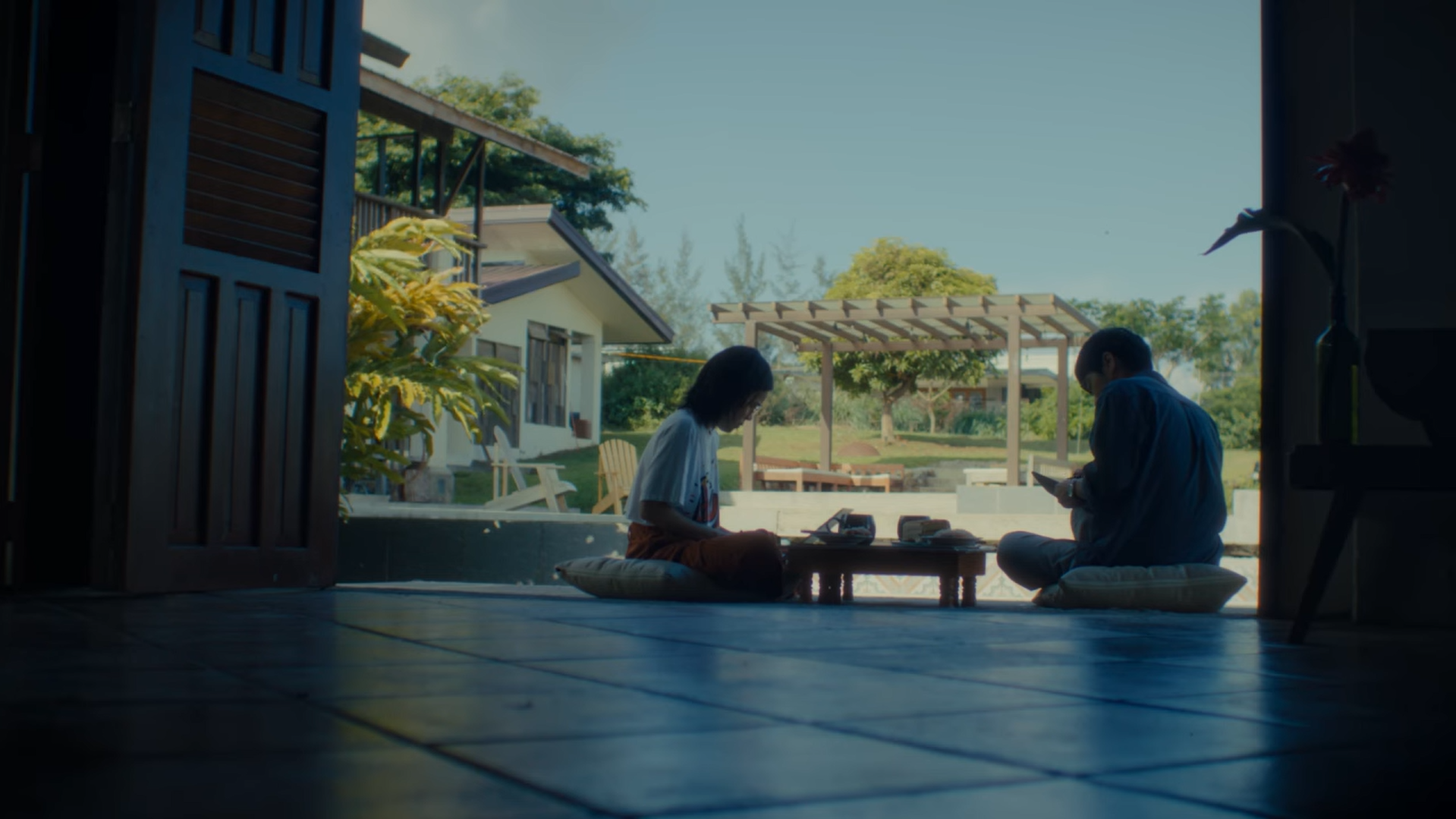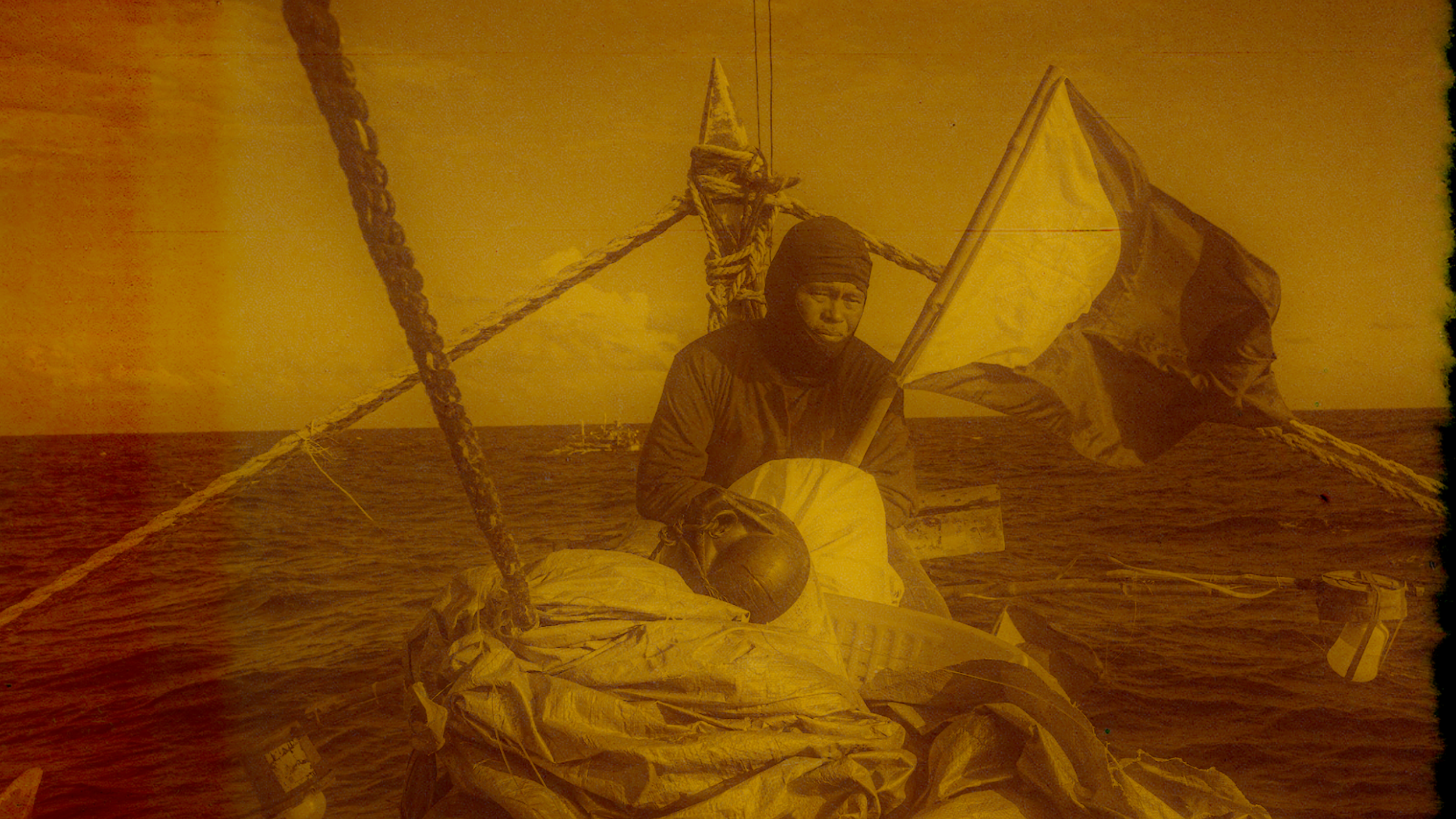The Economy of Love: Ronjay Mendiola on his short film ‘Last Shift’
The Economy of Love: Ronjay Mendiola on his short film ‘Last Shift’
Feature art by Abigail Manaluz
In her seminal essay, A Room of One’s Own, the writer Virginia Woolf boldly identified the glaring connection between poverty and being successful in life: “One cannot think well, love well, sleep well, if one has not dined well.”
Lino Brocka’s Bayan Ko (1984), Jade Castro’s Endo (2007) and most recently, Dwein Baltazar’s Third World Romance (2023) exemplify Woolf’s diagnosis. It’s unsurprising to see multiple iterations of the same story come out of our local cinema; this is our reality as a nation after all. And for Ronjay Mendiola, it is the reality of the workers that needs constant acknowledgment.
In Last Shift, the relationship of two call center agents is put to the test when they are faced with a crucial decision that could spell the end of their future together. I caught up with Mendiola to talk about his film, which took home the Best Short prize at the Puregold CinePanalo Film Festival. He spoke about some of his considerations in writing this story and the grueling process of realizing it on screen—all while balancing academics as a senior at the Polytechnic University of the Philippines.
This interview has been edited for brevity and clarity. An English translation for Taglish answers is also provided below, italicized in a dark-blue text color.
So how did you get into filmmaking? Is it related to what you’re studying right now?
Broadcasting tinatake ko ngayon sa PUP [and] news industry gusto kong pasukin. Fan lang ako ng panonood, mga mainstream film, rom-coms. Hindi ko nakikita sarili kong nag-didirect pero nagsusulat ako since senior high school. Pangarap ko makapagsulat ng script tapos magiging pelikula.
I’m taking up Broadcasting at PUP, and I want to enter the news industry. I’m just a lover of movies, especially mainstream ones and rom-coms. I don’t see myself in a directing capacity, but I’ve been writing since I was in senior high school. It’s my dream to write a script and have it made into a film.
You’re still a student, but Last Shift deals with the different struggles of the workforce. How did you come up with this narrative?
Yung theme ng Puregold [CinePanalo Film Festival] is “Mga Kwentong Panalo sa Buhay.” Nag-isip ako ng kwentong hindi gaanong nakikita sa film, ano ba yung sector na hindi gaanong nacecelebrate and nakikita yung sacrifices nila? And naisip ko pwedeng manggagawa and anong manggagawa? Then naisip ko call center agent. Pero at the same time ayoko naman i-glamorize yung buhay [nila] para maipakita lang yung kaya nilang marating through that job, pero ano yung mga kinailangan nilang isakripisyo nang ilang beses para makamit ang success.
The theme of the Puregold CinePanalo Film Festival is “Winning Stories in Life.” I thought about the kinds of stories that don’t get much spotlight on film, which sectors go unappreciated for their sacrifices. And I thought about the working sector, especially call center agents. But at the same time, I don’t mean to glamorize their lives just for the sake, but I want to highlight the things they had to sacrifice over and over to achieve success.
Did you draw from real-life stories of BPO workers?
Ang naging consideration ko sa pagkuha ng cast ay gusto ko yung may experience sa BPO para hindi ako mahirapan makipag-connect. Si Kuya Jules nag-try siya mag-train sa BPO before and si Kuya Ben current employee siya. And nung first-year [sa college] ako nag-try din ako maging BPO worker. Yung mga karanasan ng mga BPO worker, and at the same time consulting [with] my cast, ang nakatulong sa kung paano nabuo ang story.
I considered casting actors with experience in the BPO industry so that it wouldn’t be difficult to connect with them. Jules trained in the field before, and Ben is a current employee. When I was in my first-year of college, I also tried working in the industry. The experiences of these workers, and at the same time consulting with my cast, helped in building the story.
The two actors, Jules and Vince, gave very affecting performances. How was it like working with them?
At first I had doubts kasi hindi ako palamando as a director. Kaya ang ginawa ko naging consultative ako sa cast and i-involve sila sa creative parts. Tinatanong ko sa kanila paano nila nakikita ang sarili nila sa pag-deliver ng lines and doon namin fino-formulate yung scenes para sa mismong shoot, hindi kami nahihirapan kung paano ang magiging approach.
At first I had doubts because I’m not really a commanding director. So I consulted with the cast and involved them in the creative parts. I asked them how they envisioned themselves delivering the lines and from there, we formulated the scenes ahead of the actual shoot.
What were some of the challenges you encountered while making this short?
Nahirapan talaga kami kasi it’s a three-day shoot and sabay siya sa thesis namin and other activities sa school. Hindi rin sumapat yung budget and may part na nag-crowdfunding and nag-abono kami. But the biggest challenge is sa post-prod kasi 35 minutes yung original cut and 20 yung requirement, so maraming nawala sa film.
We had a hard time throughout the three-day shoot on top of doing our thesis and other school activities. The budget also wasn’t enough, and we had to crowdfund in some aspects. But the biggest challenge was in post-prod because the original cut was 35 minutes and the requirement was 20. So, there was a lot lost on the cutting room floor.
Any plans to release a director’s cut?
Oo. Meron naman kaming balak i-release kasi nabanggit din ng jury na aware sila na nag-cut and gusto nila mapanood yung buong cut.
Yes. We have plans to release the original cut, especially since the jury is aware of our dilemma, and they expressed their interest in seeing what was left out.
On the other side of things, what were the highlights throughout the journey of making Last Shift?
Yung realization na matututo ka in a hard way. Nag-struggle ako kung paano makikitungo sa mga prod mates and kaklase ko, especially when we had to cut down and adjust the film. May time na napanghinaan ako ng loob kasi hindi na nasunod yung original plan. Highlight siya in a positive way doon ko na-realize kasi as director, kailangan tuloy pa rin ang healthy communication all throughout kasi kumbaga ikaw yung utak and bawal mo silang pabayaan.
The realization that you get to learn things the hard way. I struggled working with my prod crew and classmates, especially when we had to cut down and adjust the film. There were times I was at a loss because we diverted from the original plan. I consider it a highlight because that’s when I realized as director, there has to be healthy communication all throughout, and you have to be present for your crew.
And I know you’re doing your thesis, but are you writing anything film-related right now?
Wala pa akong plano so far kasi focus muna ako sa thesis. Etong pagsali ko sa Puregold CinePanalo Film Festival hindi ko pinaalam sa mga kaklase at ka prod ko, nagpasa lang ako para i-try kasi ayoko agad mag-expect ang mga tao. Pero for now, acads muna.
I don’t have any plans so far because I’m focusing on my thesis. I didn’t tell my classmates nor my prod that I was joining the Puregold CinePanalo Film Festival because I didn’t want people to expect immediately. But for now, studies come first.
Lastly, at SINEGANG.ph we ask filmmakers to share their TAPSILOG movies: tapa = your favorite movie, sinangag = your comfort movie, and itlog = a movie recommendation.
(Tapa) Yung favorite film ko ay Barber’s Tales ni Jun Robles Lana. (Sinangag) Yung comfort movie ko—sad lang kasi wala na [KathNiel]—She’s Dating the Gangster ni Cathy Garcia-Molina. (Itlog) Ang recommend ko ay Forgotten [by Jang Hang-jun], a South Korean psychological thriller.
(Tapa) My favorite film is Jun Robles Lana’s Barber’s Tales. (Sinangag) My comfort movie is Cathy Garcia-Molina’s She’s Dating the Gangster, which is sad since [KathNiel] broke up. (Itlog) And the movie I would recommend is Jang Hang-jun’s Forgotten, a South Korean psychological thriller.


















